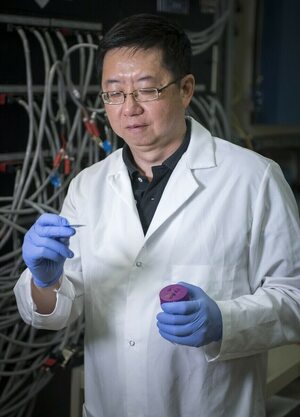"Electrolytes, Interfaces and Interphases" by Kang Xu

Abstract
Electrolyte plays the central role in all electrochemical devices, and it is the only component in such devices that physically interacts with every other component, be it electrochemically active (anode and cathode) or inert component (separator, substrate, binder, conducting additive, packaging etc.). Whenever there is interaction, an interface arises, and whenever such interaction occurs at electrochemical potential far away from the thermodynamic equilibria, an interphase becomes evitable.
This seminar will summarize the classical and current knowledge of electrolytes, interfaces and interphases as well as the interrelation among them. Emphasis will be placed on the development and design of electrolytes and interphases for advanced battery chemistries.
Biography
Kang Xu is an MRS Fellow, ECS Fellow, ARL Fellow (emeritus), and former team leader at Battery Science Branch of DEVCOMM Army Research Laboratory in Adelphi, Maryland. He received a Ph. D. in chemistry under the tutelage of Prof. Austen Angell at Arizona State University and has been conducting electrolytes and interphasial chemistry research for the past 30 years. He has published 300+ papers, wrote/edited 5 books/chapters, and obtained 20+ US Patents, with total citation of 57,000+ and an h-index of 117. He is a Clarivate’s highly-cited author, and one of the top 2% most influential researchers in the Stanford Database.
Besides the numerous publications, he is best known in the field for the two comprehensive reviews published at Chemical Reviews in 2004 and 2014, and a book entitled “Electrolytes, Interfaces and Interphases” published by RSC Press in April 2023. His work has received many recognitions and awards within DoD and in the field, including multiple Department of the Army R&D Awards, the 2015 UMD Invention of the Year, 2017 International Battery Association Technology Award, 2018 ECS Battery Research Award, and 2022 Army Civilian Service Medal.